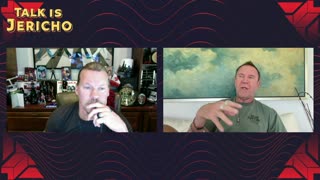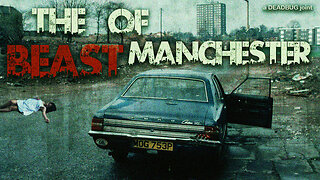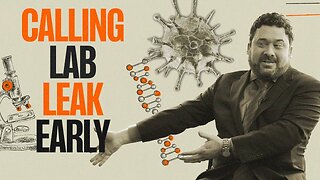Critias Plato
Don't forget to follow my channel for more content.
This video is perfect for putting on when going to bed, driving or while doing things around the house!
By: Plato ~ ΠΛΆΤΩΝ
Translated By: Benjamin Jowett
Full Length Audiobook Video
By: Plato ~ ΠΛΆΤΩΝ
Translated By: Benjamin Jowett
Critias - krities Greek: Κριτίας - one of Plato's late dialogues, recounts the story of the mighty island kingdom Atlantis and its attempt to conquer Athens, which failed due to the ordered society of the Athenians. Critias is the second of a projected trilogy of dialogues, preceded by Timaeus and followed by Hermocrates. The latter was possibly never written and Critias was left incomplete. Because of their resemblance (e.g. in terms of persons appearing), modern classicists occasionally combine both Timaeus and Critias as Timaeus-Critias.
According to Critias, in ancient times, the Earth was divided among the gods by allotment. The gods treated the humans in their districts much as shepherds treat sheep, tending and guiding them like nurselings and possessions. They did this not by force, but by persuasion. In those days, the areas which are now the islands of Greece were high hills covered in good soil.
A number of great deluges came (including the global flood of Deucalion), and because no soil washed down from the mountains to replace the lost soil, the soil in that land was stripped away, causing much of the area to sink out of sight, and the islands that remained to become the "bones of a dead body."
Athens in those days, was very different. The land was rich and water was brought in from underground springs (which were later destroyed by earthquake). He describes the civilization of Athens at that time as ideal: pursuing all virtue, living in moderation, and excelling in their work.
He then moves on to describe the origins of Atlantis. He said that Atlantis was allotted to Poseidon. Poseidon fell in love with a mortal girl named Cleito (daughter of Evenor and Leucippe), and she bore him a number of children, the first of which was named Atlas, who inherited the kingdom and passed it onto his firstborn for many generations. Critias then goes into a great deal of detail in describing the island of Atlantis and the Temple to Poseidon and Cleito on the island, and refers to the legendary metal orichalcum. Critias then reiterates the remarkable virtue of the Atlanteans, saying:
"For many generations, as long as the divine nature lasted in them, they were obedient to the laws, and well-affectioned towards the god, whose seed they were; for they possessed true and in every way great spirits, uniting gentleness with wisdom in the various chances of life, and in their intercourse with one another. They despised everything but virtue, caring little for their present state of life, and thinking lightly of the possession of gold and other property, which seemed only a burden to them; neither were they intoxicated by luxury; nor did wealth deprive them of their self-control; but they were sober, and saw clearly that all these goods are increased by virtue and friendship with one another, whereas by too great regard and respect for them, they are lost and friendship with them."
However, the Atlanteans became corrupt as:
"...when the divine portion began to fade away, and became diluted too often and too much with the mortal admixture, and the human nature got the upper hand, they then, being unable to bear their fortune, behaved unseemly, and to him who had an eye to see grew visibly debased, for they were losing the fairest of their precious gifts; but to those who had no eye to see the true happiness, they appeared glorious and blessed at the very time when they were full of avarice and unrighteous power."
Critias then says that Zeus, the god of gods, seeing the corruption of the Atlanteans, determined to chastise them. Zeus begins to speak; but what he says, and everything that follows in the Critias, remains non extant.
Summary By: Wikipedia
-
 16:01
16:01
Bearing
23 hours agoTikTok has Reached NUCLEAR Levels of CRINGE
13.2K23 -
 5:46
5:46
Chris Jericho
18 hours agoTalk Is Jericho Highlight: Renny Harlin Talks The Strangers & Nightmare On Elm Street 4
12.6K1 -
 17:05
17:05
DEADBUGsays
1 day agoThe Beast Of Manchester
6.69K4 -
 4:54
4:54
ErmzPlays
5 hours agoHalo Composer Sets Gaming Industry ON FIRE By Coming Out As Republican
10.4K4 -
 11:15
11:15
Good Kid Productions
1 day agoCalling Lab Leak Early with the Washington Post's Josh Rogin (convo)
10.6K3 -
 4:42
4:42
scoutthedoggie
8 hours agoWar Games in Scotland
11.9K2 -
 35:59
35:59
Brewzle
23 hours agoThis Is The BIGGEST Bourbon Drop I’ve Ever Seen
10.1K1 -
 8:03:59
8:03:59
SNEAKO
16 hours agoSNEAKO X SPECIAL GUEST
130K135 -
 6:56:33
6:56:33
Akademiks
19 hours agoDiddy Brutal Beatdown of Cassie Caught on Video Tape! Diddy Paid to Supress it, But it still LEAKED!
103K64 -
 LIVE
LIVE
Right Side Broadcasting Network
4 days agoLIVE REPLAY: President Trump Keynotes Minnesota GOP Annual Dinner - 5/17/24
4,537 watching